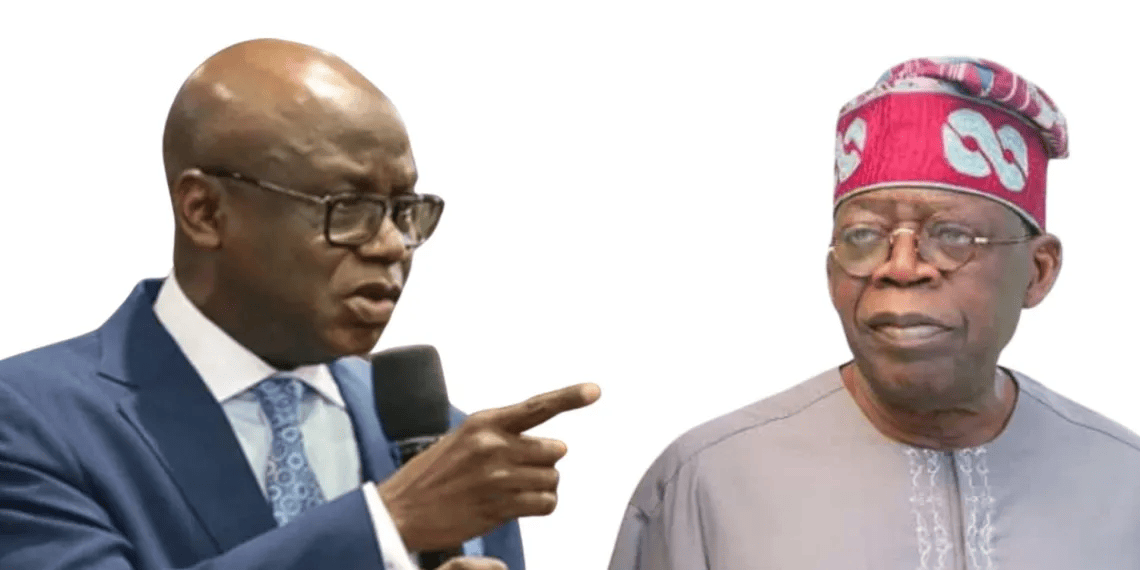
In a no-holds-barred Easter message delivered during his annual State of the Nation address in Lagos, Pastor Tunde Bakare, founder of Citadel Global Community Church, issued a stark warning to President Bola Ahmed Tinubu, urging him to abandon a style of leadership he described as dangerously autocratic and politically corrosive.
The fiery cleric, who once aspired to lead Nigeria as a presidential candidate under the ruling All Progressives Congress (APC), accused President Tinubu of entrenching a “motor park brand of politics” that has not only undermined legislative decorum but also weakened the nation’s constitutional foundations.
“Nigeria is far too fragile for the kind of governance that treats power as a private inheritance,” Bakare said. “This country needs leaders with humility and empathy—not demagogues playing God.”
Referencing recent events in the Senate, Bakare condemned what he called a troubling erosion of statesmanship. He pointed to the Senate Ethics Committee’s controversial handling of sexual harassment allegations raised by Senator Natasha Akpoti-Uduaghan against Senate President Godswill Akpabio. The pastor also criticized the conduct of Senator Onyekachi Nwebonyi during a heated exchange with former Minister of Education, Oby Ezekwesili, describing it as “disgraceful and degrading to democratic values.”
“Such unfiltered venom and crude dismissiveness,” Bakare said, “are symptoms of a political elite that has become tone-deaf and intoxicated by unchecked power.”
The incident in question, which occurred on March 25 during a Senate hearing, saw Senator Nwebonyi lash out at Ezekwesili with deeply personal insults, including telling her she would “never be a senator” and calling her “an insult to womanhood.” The Senate, instead of addressing the substance of the allegations, later dismissed the case, drawing widespread criticism.
Bakare did not spare the economic direction of the current administration either. He accused Tinubu’s government of driving the nation into a deeper abyss of economic hardship through poorly executed reforms. He cited soaring food inflation, fuel price hikes exceeding 430%, and a generational cost-of-living crisis as evidence of mismanagement.
Quoting figures from the Nigerian Economic Summit Group, Bakare revealed that Nigeria has now earned the grim title of having one of the highest misery indices in the world—with tens of millions sliding into extreme poverty.
“The chaos of late 2024, where desperate parents flung their children over fences in Ibadan during food stampedes, resulting in the deaths of over thirty-five children, was a heart-wrenching indictment of failed leadership,” Bakare lamented. “It echoed the darkest biblical famines—except this is real, this is now.”
While acknowledging marginal successes—such as a $5 billion boost in foreign reserves—Bakare called for a total overhaul of Nigeria’s economic trajectory. He stressed the urgent need for empathy, transparency, and a coherent national methodology in implementing reforms.
Bakare’s rebuke comes against the backdrop of his long-standing political rivalry with Tinubu, dating back to the latter’s tenure as Governor of Lagos State. On the eve of Tinubu’s inauguration, Bakare famously declared that he would not recognize him as his president, citing alleged irregularities in the 2023 election.
Though critics have noted his comparative silence during President Muhammadu Buhari’s controversial administration—an era Bakare had been politically aligned with—his recent statements signal a renewed willingness to speak out against what he views as national drift.
A former vice-presidential candidate to Buhari in 2011 and a once-hopeful aspirant for the APC’s 2023 presidential ticket, Bakare received no votes at the primaries. Still, his voice continues to resonate in the corridors of public discourse, particularly among those disillusioned by the status quo.
“The character of leadership required in this hour must be forged by service, not self-exaltation,” Bakare concluded. “This is not a time to dominate—it is a time to redeem.”



